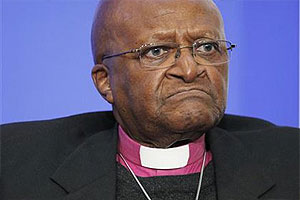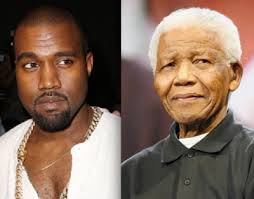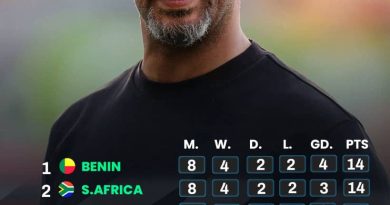Nelson Mandela: A Unique World Leader Dies At 95
Oladunjoye Opeyemi
On Thursday, December 5, 2013,the world discovered that it had lost Nelson Mandela, the one of the greatest leaders of our time, to a lung infection connected to the tuberculosis ailment he contracted while serving 27 years as a political prisoner. The news came not as a shock to many,as Mandela had been in and out of hospitals over the past months with several rumours of his ‘death’ circulating; neither did it come as sorrowful as he died at a ripe age of 95. It did however weigh in sadness all over as the harsh reality sunk that the World just might have lost one of the last true legends around.
Named Rolihlahla, which means “Troublemaker” in the Xhosa Language, Mandela was born on July 18 ,1918 in the village of Mvezo in Umtatu, in the Cape Province -where apartheid had not yet been completely enshrined as law but a system of strict, violent racial segregation was already in place. He was born by Nosekeni Fanny, third wife of Gadla Henry Mphakanyiswa, into the royal Thembu family, which controlled the Transkei region, an area relegated to blacks by the white government. His parents were illiterates but his mother was a devout christian who sent him to a local Methodist school where he was christened ‘Nelson’ by his first teacher. He also later widely known and fondly called ‘Madiba’, his clan name.
After his father died when he was nine years old, Mandela was entrusted under the guardianship of Thembu regent, where his love for christianity and African History increased. He began his secondary education at Clarkebury Boarding Institute in Engcobo, the largest school for black Africans in Thembu land and attended Healdtown, a Methodist college in Fort Beaufort. Although he enrolled at the University of Fort Hare, an elite black institution in Eastern Cape, he left after he was temporarily suspended from the University without receiving his Bachelor of Arts (BA) degree.
On returning home to his guardians to find out that the chief had arranged a marriage for him, Mandela avoided the act by running away to Johannesburg where he worked as a night watchman and later, a clerk in a law firm. He studied law as one of a handful of black students at Witwatersrand University and also met Oliver Tambo and Walter Sisulu with whom he later co-founded the ANC’s (African National Congress) youth league.
In 1948 the National Party came to power and started passing a series of laws enforcing racial segregation, which became known as apartheid. Four years later, Mandela opened the country’s first black law office with Tambo, representing defendants who were oppressed by the system. In 1955 he banded together with South Africans of Indian descent, mixed race South Africans, and trade union representatives to draft the Freedom Charter, calling for the creation of a democratic, non-racial state with the nationalization of major corporations.
The government first prosecuted Mandela in 1956 when it charged him and 155 other activists with treason. After a four-year trial, the authorities dropped the case. In 1958, he divorced his first wife and married social worker Winnie Madikizela. Two years later, the government outlawed the ANC and Mandela went underground as the Apartheid regime became more oppressive. That same year police massacred 69 protesters in the Johannesburg township of Sharpeville. Though he had initially committed to non-violent protest, in 1961 he co-founded Umkhonto we Sizwe (the Spear of the Nation, also known as MK), a group that waged a bombing campaign against government targets.
In 1964, the government again put Mandela on trial. Facing a death sentence, he made a famous, four-hour-long speech that concluded with these moving words that underlined his commitment to non-racialism:
“During my lifetime I have dedicated myself to this struggle of the African people. I have fought against white domination, and I have fought against black domination. I have cherished the ideal of a democratic and free society in which all persons live together in harmony and with equal opportunities. It is an ideal which I hope to live for and to achieve. But if needs be, it is an ideal for which I am prepared to die.”
He and eight others were convicted of conspiracy, sabotage and treason and sentenced to life in prison. He spent much of it in a tiny cell on Robben Island, a barren, windswept expanse in shark-infested Table Bay, four miles from Cape Town, where he worked in a rock quarry and secretly wrote his memoir, which he hid from guards inside tin cans buried in the prison vegetable patch. He was later transferred to the Pollsmoor Prison and then, the Victor Verster Prison.
By the 1980s, anti-apartheid activists were publicizing Mandela’s name as the imprisoned leader of the struggle against apartheid and the slogan “Free Nelson Mandela” gained popularity around the world. Inside South Africa, the police and military killed and tortured thousands who continued to protest apartheid. Finally, after years of international ridicule and the tightening of economic sanctions that had begun in 1967, on February 2, 1990, F W De Klerk lifted the ban on the A.N.C.
Nine days later Mandela walked free from prison. He delivered these timeless lines at Cape Town City Hall on February 11, 1990:
“Friends, comrades and fellow South Africans, I greet you all in the name of peace, democracy and freedom for all. I stand here before you not as a prophet but as a humble servant of you, the people. Your tireless and heroic sacrifices have made it possible for me to be here today. I therefore place the remaining years of my life in your hands.”
South Africa held its first all-race democratic election in 1994 and overwhelmingly chose Mandela. He immediately faced huge problems, including rampant poverty, high unemployment, a vastly unequal education system, rising crime and a call by many South Africans to nationalize businesses and return land to the original black owners. Instead he negotiated a series of compromises that remain controversial. Most multinational corporations stayed, and some black South Africans have amassed significant wealth, but the majority of the population still lives in poverty and confronts one of the highest crime rates in the world and an AIDS crisis, with more than 10% of the population living with the HIV virus.
Mandela was married three times, fathered six children, had 17 grandchildren and a growing number of great-grandchildren.
In October 1944, Three years after running away from home, Mandela married his first wife, Evelyn Ntoko Mase, a Transkei native he met in Johannesburg. The couple had 2 sons and 2 daughters between 1946-1953. They broke up in 1957 after 13 years, the divorce was as a result of claims of his adultery and constant absences and the fact that she couldnt support his political ideologies as she was a member of the Jehovah’s Witnesses.
His second wife, Winnie Madikizela-Mandela, also a Transkei native he met in Johannesburg, was the city’s first black social worker. They had two daughters, Zenani (Zeni) and Zindziswa (Zindzi) Mandela-Hlongwane, born in 1958 and 1960 respectively. Zindzi was only 18 months old when her father was sent to Robben island. Winnie was an activist in her own right and was held in solitary confinement for 13 months on terrorism charges and in 1973, endured another six months in jail. When the 1976 student riot revolt broke out in Soweto, Winnie was unbowed, urging crowds to “fight to the bitter end”. The couple were later separated in April 1992 and divorced in March 1996. While Mandela was in prison, his daughter Zenani was married off in 1973 to Prince Thumbumuzi Dlamini, a brother of both King Mswati III of Swaziland and of Queen Mantfombi of the Zulus. She was never permitted by South African authorities to visit her father in prison. In July 2012, Zenani was appointed ambassador to Argentina, becoming the first of Mandela’s three remaining children to enter public life.
In the mid 90s, Mandela had begun courting Graça Machel (née Simbine), widow of Samora Machel, the former Mozambican president and ANC ally who was killed in an air crash 12 years earlier. The two had their first contact when Mandela wrote to her from prison when her husband died as the crash was believed to have been perpetrated by the Apartheid Regime.
On July 18, 1998 — Mandela’s 80th birthday — Machel became Mandela’s third wife. Mandela appeared to have been smitten as he told reporters: “Late in life, I am blooming like a flower because of the love and support she has given me.”
Mandela was known for his heroic adherence to his principles and his extraordinary decision to embrace and forgive his former oppressors. He wrote in his autobiography, Long Walk to Freedom, published four years after his release from prison in 1990,“If you want to make peace with your enemy you have to work with your enemy. Then he becomes your partner.”
A legacy which promotes unity and peace,a legacy he is known to have followed himself.
Following his jail term, with the violent, racist apartheid system crumbling under world pressure, he embraced President F.W. de Klerk and then served alongside him in a transitional coalition of national unity. The two men won the Nobel Peace Prize in 1993.
Instead of prosecuting the crimes of many Apartheid-era commanders and enforcers, in 1995 he agreed to set up the Truth and Reconciliation Commission, where victims of racist violence and torture could tell their stories and perpetrators told theirs. The commission granted violent former government officials and employees amnesty in exchange for their honesty about what they did. Though controversial, the process was also hailed as a triumph of mercy and a meaningful step toward healing the country’s deepest wounds.
In 1995, when South Africa hosted the Rugby World Cup, he encouraged all South Africans to support the national team, the Springboks, who had previously been a symbol of white exclusion. In 2010 also,he was instrumental in helping South Africa gain Hosting Rights to the World Cup, showing his sportsmanship and re-affirming his belief that Sports unite people.
Internationally, he acted as mediator between Libya and the United Kingdom in the Pan Am Flight 103 bombing trial, and oversaw military intervention in Lesotho. He declined to run for a second term, and was succeeded by his deputy, Thabo Mbeki. Mandela subsequently became an elder statesman, focusing on charitable work in combating poverty and HIV/AIDS through the Nelson Mandela Foundation.
Within South Africa, Mandela was widely considered to be “the father of the nation”, and “the founding father of democracy”, being seen as “the national liberator, the saviour, its Washington and Lincoln rolled into one”. In 2004, Johannesburg granted Mandela the freedom of the city, and the Sandton Square shopping centre was renamed Nelson Mandela Square, after a Mandela statue was installed there. In 2008, another Mandela statue was unveiled at Groot Drakenstein Correctional Centre, formerly Victor Verster Prison, near Cape Town, standing on the spot where Mandela was released from the prison. In November 2009, the United Nations General Assembly proclaimed Mandela’s birthday, 18 July, as “Mandela Day”, marking his contribution to the anti-apartheid struggle and called on individuals to donate 67 minutes to doing something for others, commemorating the 67 years that Mandela had been a part of the movement.
Many World Leaders have expressed profound sadness over his death, expressing how much of an inspiration his life was.
South African President, Jacob Zuma said while announcing Mandela’s death: “Our nation has lost its greatest son. He is now resting. He is now at peace. Fellow South Africans, Nelson Mandela brought us together and it is together that we will bid him farewell.”
The Queen of England has said she is “deeply saddened” to learn of Nelson Mandela’s death and called him someone who “worked tirelessly for the good of his country.”
US President, Barack Obama in his statement said: “I cannot fully imagine my life without the example Nelson Mandela set. I’m one of the countless millions who drew inspiration from Nelson.”
In his tribute to Nelson Mandela, UK Prime Minister David Cameron said that “a great light has gone out in the world” and Former US President, Bill Clinton called Mandela one of the World’s most important leaders and one of its finest human beings.
Nigeria’s President, Goodluck Ebele Jonathan in his tribute said: “The indefatigable spirit which Nelson Mandela demonstrated throughout his life will continue to inspire”. The President of Ghana, John Mahama called Mandela “an icon who served his country and continent well in the liberation struggle”, while UN Secretary General Ban Ki-moon called him “A giant for justice” and the Indian Prime Minister regarded him as “a true Gandhian.”
His fellow countryman, Archbishop Desmond Tutu said: “Because of him we amazed the world. A world that thought we would live in eternal devastation caused by apartheid.” While former US Secretary of State, Hillary Clinton said: “Nelson Mandela was a champion for justice & human dignity, with unmatched grace. I’ll remember him as Madiba, truly an unconquerable soul.”





